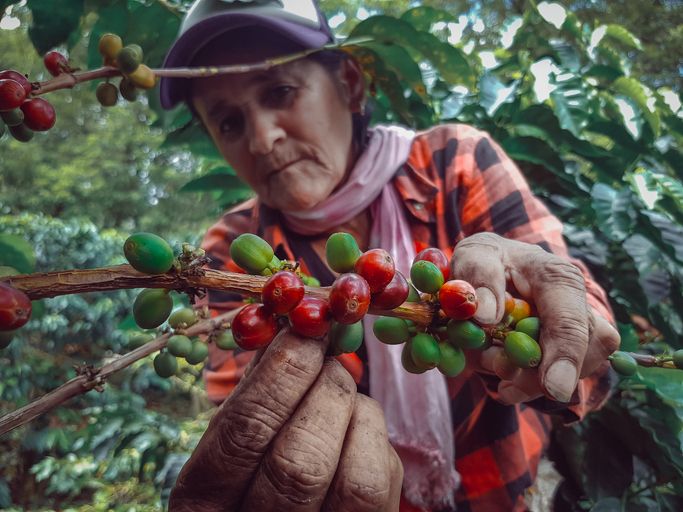Editor’s note: Paula Santilli is CEO at PepsiCo Latin America, PepsiCo, based in Mexico City. The views expressed in this guest article are the author’s own and do not necessarily represent those of AFN.
“So I summoned the courage and went into a bank to ask for a loan to buy a tractor,” Juliana said with a smile. “I knew the tractor was what we needed to improve our harvest and that of our neighbors.”
I’ve had the privilege to talk to many women in agriculture across Latin America, just like Juliana in Colombia. I’ve personally witnessed their dedication, their capacity, their deep comprehension of sustainability. They understand like no one else all aspects of this noble activity which often constitutes the main means of survival for their families and communities.
And yet, unfortunately, just because they are women things are oftentimes more difficult.
The hardships brought by the Covid-19 health crisis have jeopardized an already precarious situation, putting at risk the livelihood of these hard-working women and of many others in Latin America and the Caribbean.
In 2020, the pandemic triggered an 8% contraction in the region’s GDP and a 10% decrease in total employment, according to the Inter-American Development Bank (IDB). Moreover, 52 million people will drop out of the middle class and labor informality will swell to 62%. More than 2.7 million formal businesses in the region will close, which will generate the loss of 8.5 million jobs.
Economic activity will not return to pre-pandemic levels until 2023. On a global scale, Covid-19 has pushed over 50 million women into poverty as they mostly work in the services, tourism, and retail sectors – industries that have been severely affected. On top of everything else, hygiene and health hazards are more evident than ever before.
Poverty sinks women and girls first.
When reflecting about what can be done, collective action is what comes to mind. We need to work together, and we need to establish close collaboration with experts, governments, NGOs, and other companies. We all have a contribution to make. What matters is to join efforts and to establish alliances that will have the power to amplify initiatives and support platforms in favor of those who need it most. And we need to work collectively with urgency.
Over the years, PepsiCo and the IDB have been able to positively impact the lives of men and women who, in turn, contribute substantially to the Americas’ development. When 14 years of a public-private partnership allows you to benefit the lives of over 19 million people, you know you’re on the right track.
That’s why PepsiCo, the PepsiCo Foundation, the IDB, and the IDB Lab recently announced the renewal and extension of their alliance until 2026. Together we want to continue to trigger economic and social change in a region that has an enormous growth potential – not only in terms of natural resources, but also of its people.
In addition to the $17 million that PepsiCo and the PepsiCo Foundation have committed since 2011, nearly $6 million has recently been allocated to fund programs in four priority areas: agriculture and economic recovery – two tracks that are part of our strategy to address urgent needs in the region– and water access and recycling, which will continue to be part of our efforts to foster sustainable development in Latin America. All the programs that we have launched for the next five years pay special attention to women empowerment.
Agriculture is our starting point. It is where we can build more resilient, inclusive, smart, and sustainable supply chains and communities. The participation of women in the field is essential. If women farmers had the same access to resources as men, they could increase the harvest of their land by 20-30%, potentially reducing the number of hungry people in the world by 150 million.
As part of this new phase of collaboration with the IDB Lab, which helps design intervention models to runs pilots and measure success, we announced the creation of the Next Generation Agriculture Fund. This initiative seeks to promote the inclusion of women in agriculture with a joint investment of $2 million. The fund will be implemented in Ecuador, Guatemala, and the Dominican Republic to strengthen the productive capacities of women farmers and improve both the resilience and sustainability of potato supply chains.
Water access will continue to be an important aspect of this partnership, through innovative solutions like HydroBID and Aquafund to bring safe water to rural communities; as well as inclusive recycling through LatitudR, an area where we will continue to collaborate with public and private actors to provide local income opportunities while building collection and processing capacity.
All this would not be possible without the muscle and activation capacity that derives from these alliances. The private sector has a fundamental role to play in the economic reactivation of the region. However, collective action is critical to accomplish a sustained and steady recovery. Together we need to create job opportunities, to help reactivate small businesses, and to support women and minority groups that have been affected by the pandemic. Now more than ever, we must propel growth and support our region’s economic recovery, bringing prosperity to Latin America and its communities.
In Colombia, Juliana is now a proud tractor owner. She is highly conscious of maintaining the vehicle properly. She is rapidly paying off the loan and making plans for the next piece of machinery. And, by the way, she lends it to all her neighbors – creating shared prosperity.





